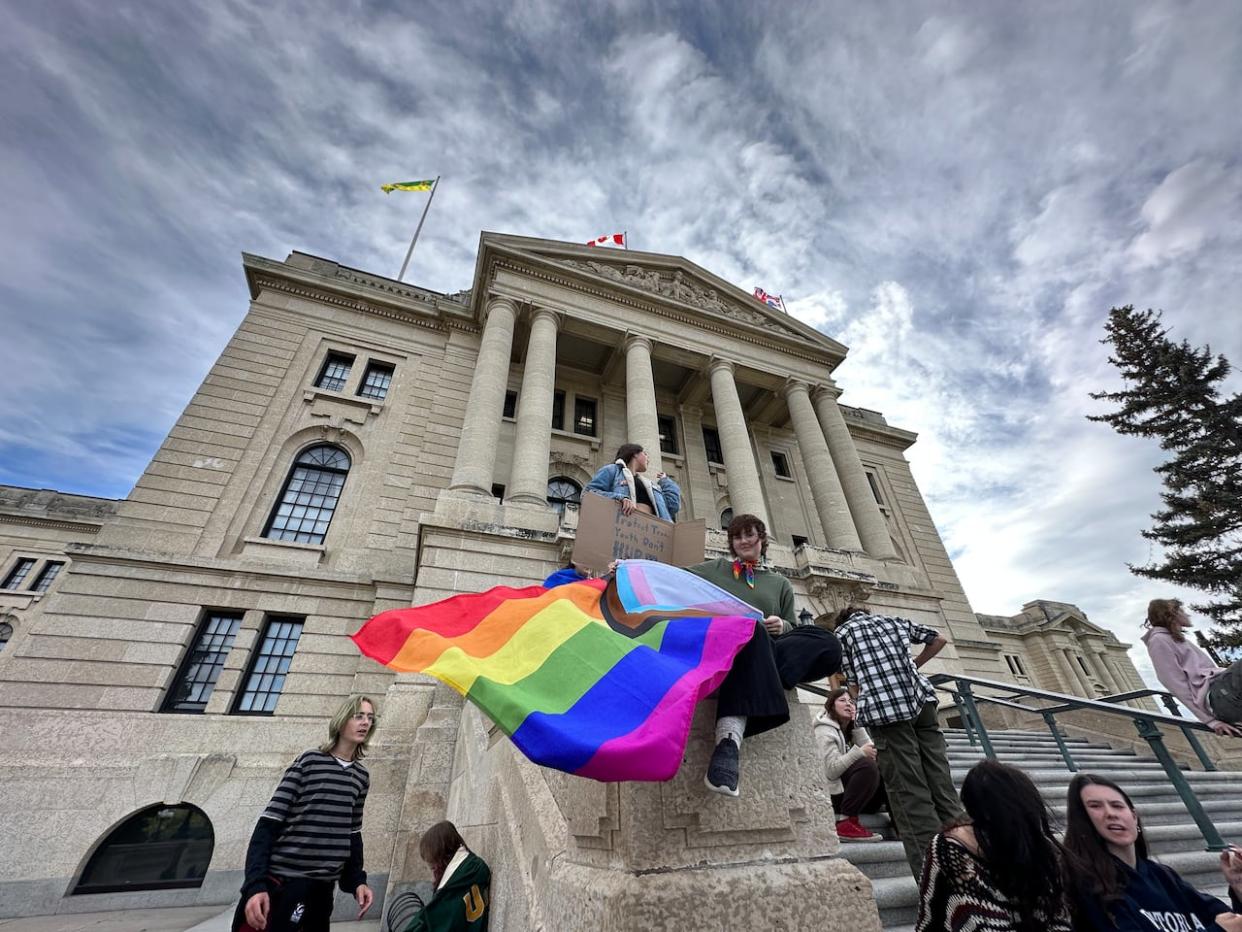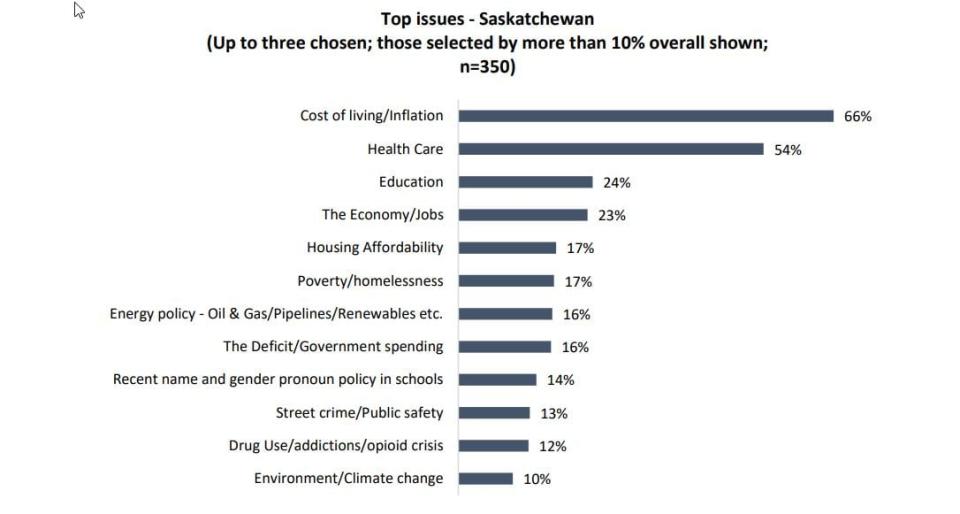Survey suggests Sask. residents divided on support of pronoun legislation

Saskatchewan residents are divided on whether they support the government's recent school pronoun legislation, a new survey suggests.
In an online survey conducted by the Angus Reid Institute, 55 per cent of respondents said they support the bill, passed in October, that requires schools to seek parental consent if a student wants to use a different pronoun or name. Thirty-nine per cent of respondents said they opposed the bill, and five per cent said they weren't sure.
Respondents were also asked whether there should be exceptions to protect children who are living in abusive households. They were split almost in half on that question too, with 48 per cent supporting exceptions.
The survey polled 350 Saskatchewan residents who are members of the Angus Reid Forum from Nov. 24 to Dec. 1. For comparison purposes, a probability sample of that size would have a margin of error of plus or minus five per cent, 19 times out of 20.
The Saskatchewan government welcomed the survey results.
"The government maintains its position that parents and guardians have a key role in protecting and supporting their children as they grow and develop and will do everything in its power to protect parental rights," Rose Semchuk, executive director of communications with the Ministry of Education, said in an emailed statement.
'Evidence is clear'
A spokesperson for Egale Canada, an organization that works to improve the lives of LGBTQ people, said everyone can agree young people deserve to feel safe and that their parents play an important role in fostering a safe environment.
"But the evidence is clear, in that not allowing young people to be themselves at school will cause irreparable harm by diminishing their mental health and well-being and placing their safety at risk," said Bennett Jensen, Egale's director of legal.
One of the biggest challenges is the lack of awareness about the harmful consequences, Jensen said. Since the legislation has passed, he said Egale has heard stories about students being outed to their parents when it's not safe, and stories of gender-diverse students being kicked out of their homes.
Jensen was among the lawyers representing UR Pride in its legal fight against the initial pronoun policy. They won an injunction against the policy, but then the government held an emergency session of the Legislature and invoked the notwithstanding clause to pass Bill 137.
Jensen said Egale is continuing the legal fight and will be back in court in January to argue an amended application.
Top issues
The Angus Reid survey also asked respondents what they think are the top issues facing the province. The cost of living and health care were the top two.

The Angus Reid survey asked respondents to choose up to three issues that they consider most pressing for Saskatchewan. (Angus Reid Institute)
With an election expected in October 2024, the survey also asked for respondents' voting intentions.
Among leading and decided voters, 52 per cent said they'd be voting for the Sask. Party, while 39 per cent said they'd be voting NDP.
Six per cent selected an "other party" and three per cent selected the Saskatchewan Progress Party.


